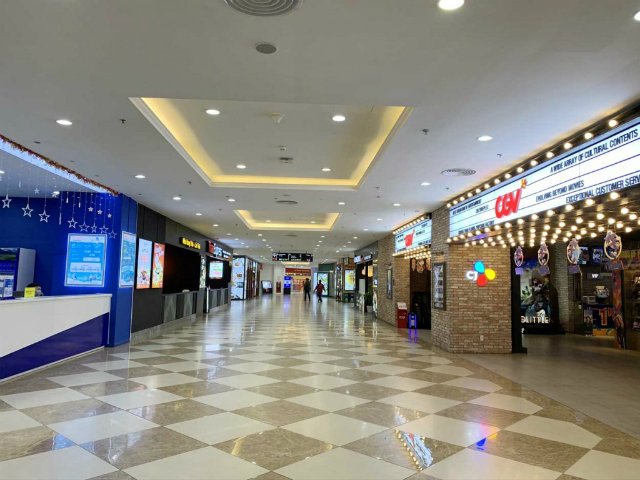The Ha Noi retail property market faced a lot of difficulties in the first quarter this year due to the impact of the novel coronavirus (COVID-19) pandemic.

The Ha Noi retail property market faced a lot of difficulties in the first quarter this year due to the impact of the novel coronavirus (COVID-19) pandemic, according to Jones Lang Lasalle Vietnam Co Ltd (JLL).
The market recorded a slight decrease of 48 percentage points quarter on quarter to 90.4 per cent in the occupancy rate of the first quarter.
In addition, the regulation on restricting gatherings caused a sharp reduction in the number of visitors at shopping centres and made them pay more attention to online shopping, it said.
The visitor decline had a direct impact on retail activities, causing shops in the shopping centres to scale back or temporarily close.
Only supermarkets and convenience stores witnessed less impact from the pandemic because they sell essential goods.
JLL reported that in the first quarter, Ha Noi did not have new supply on the retail property market. Large shopping malls outside the central business districts (CBD) continued to be attractive to customers in the capital city.
The market still recorded some bright spots, including the re-opening of Vincom Pham Ngoc Thach Shopping Mall after upgrades. Of which, the first Uniqlo store in Ha Noi opened in Vincom Pham Ngoc Thach.
In terms of price, the average rent in the retail property market remained stable at US$29.3 per sq.m in the first quarter, 1.6 per cent higher than the same period last year, according to JLL.
Due to the impacts of the COVID-19 pandemic, many shopping centre owners had temporary support measures for their tenants, including reduction of rents by 10-50 per cent depending on commodity sectors, it said.
JLL said that Ha Noi’s retail market would be seriously affected by the COVID-19 pandemic. The market needs time to recover because the prolonged disease has affected purchasing power and rental demand.
In addition, with a large supply expected to enter the market in 2020, the competitive pressure will continue to increase, leading to a suitable adjustment of rents. — VNS





